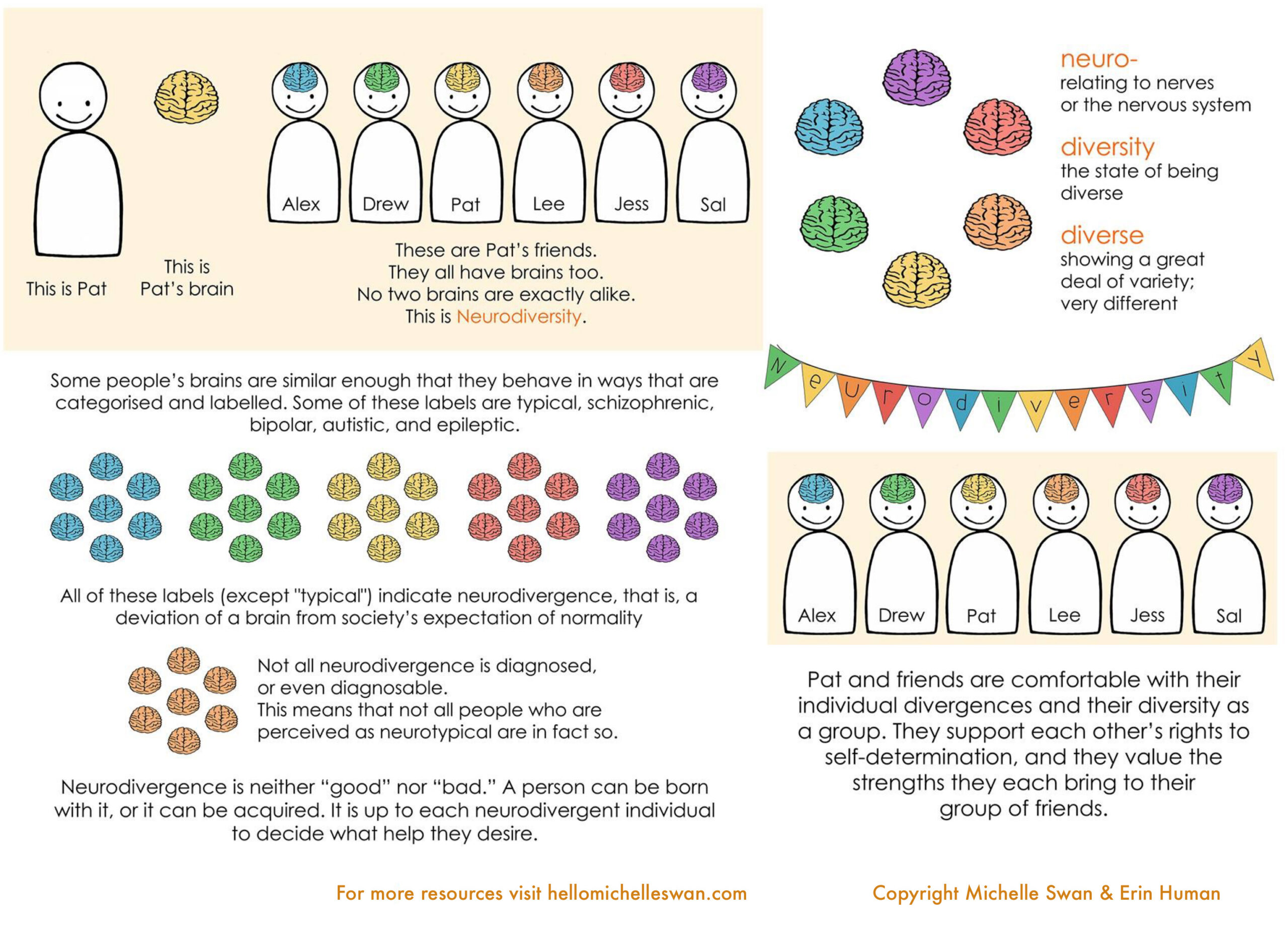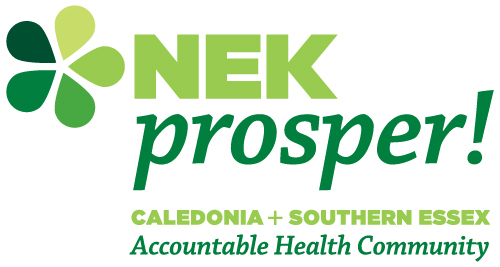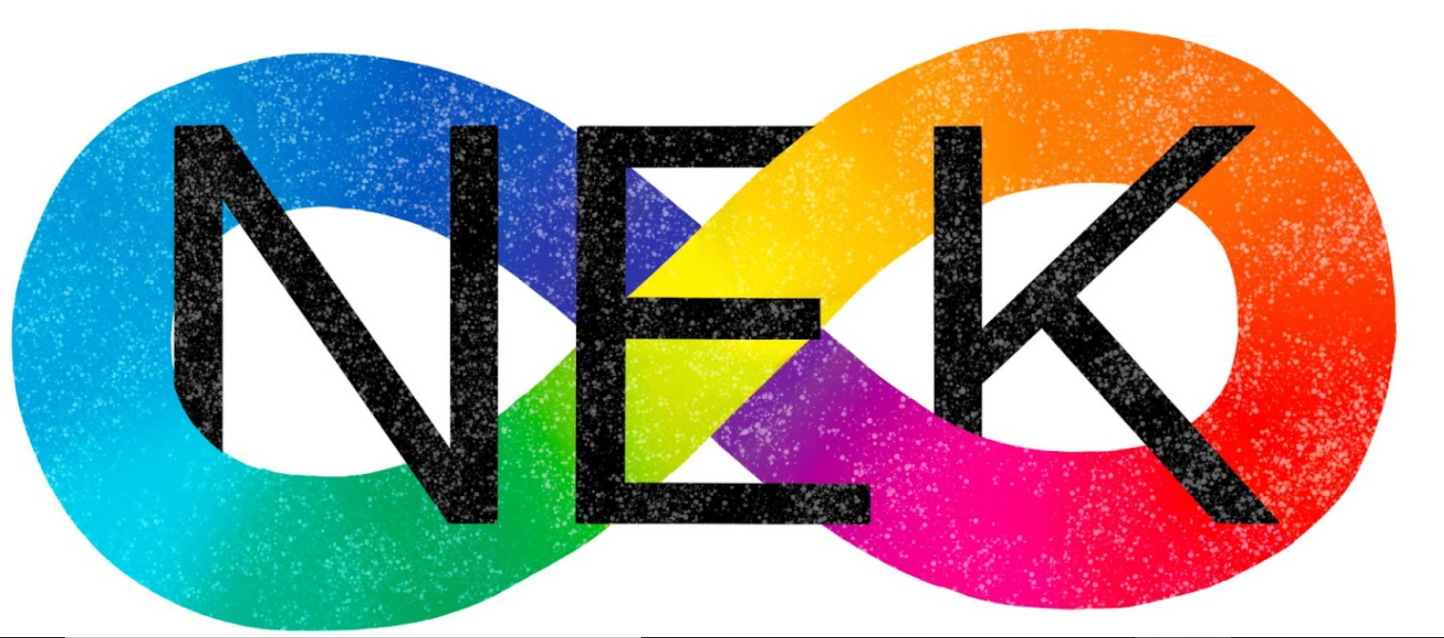“Neurodiversity is the idea that neurological differences like autism and ADHD are the result of normal, natural variation in the human genome” – John Elder Robison

Third Friday of each month: Neurodivergent Professionals Working Group:
Authenticate – Translate – Educate – Advocate – Celebrate
An affirming space of neurodivergent individuals by neurodivergent individuals for neurodivergent individuals
Third Friday of each month from 3:00-4:30pm in person in St. Johnsbury and online via WebEx
Current projects:
- Perspectives on Neurodiversity Training (for health and human service partners)
- Health by Design (Universal design workshop series)
Vermont Learning-Support Initiative (VLSI) is an incredible local organization whose mission is to promote opportunities for neurodivergent* youth to realize their full potential. In doing this work, VLSI is a key health equity network partner as we create a society where we choose to actively develop skills and accommodations that enable everyone to contribute to learning environments, employment and community.
*Neurodivergent: Those who possess a brain differing from society’s conception of ‘normal’ (neurotypical).
Interested in finding out more or have questions? Contact Brad Smith, VLSI Director and Neurodivergent Professionals Working Group Co-founder at bsmith@vermontlearningsupport.org
Terminology
“New paradigms often require a bit of new language, and this is certainly the case with the neurodiversity paradigm. I see many people – scholars, journalists, bloggers, internet commenters, and even people who identify as neurodiversity activists – get confused about the terminology around neurodiversity. Their misunderstanding and incorrect usage of certain terms often results in poor and clumsy communication of their message, and propagation of further confusion (including other confused people imitating their errors). At the very least, incorrect use of terminology can make a writer or speaker appear ignorant, or an unreliable source of information, in the eyes of those who do understand the meanings of the terms.” – Dr. Nick Walker
- Nick Walker’s “Neurodiversity: Some Basic Terms & Definitions”
- Boston University Diversity & Inclusion’s “Ability and Neurodiversity terms to broaden your understanding of Diversity, Equity, and Inclusion”
- Therapist Neurodiversity Collective’s “Learn Neurodiversity Terminology”
Other resources around neurodiversity include:
Kingdom Autism and Behavioral Health services the northern Vermont and New Hampshire area, providing efficient and intuitive programs to children with Autism Spectrum Disorder, and other related challenges.
All Brains Belong VT is a nonprofit, 501(c)(3) organization located in Montpelier, Vermont. We use principles of inclusive design to offer neuroinclusive healthcare and community connection.
Landmark College in Vermont – The College for Students Who Learn Differently: Dyslexia | ADHD | Autism | Executive Function Challenges
Yo Samdy Sam YouTube channel – Exploring the topics of autism and neurodiversity.
Kaleidoscope Society is an empowering community for and by Women with ADHD.
Check out the Divergent Conversations Podcast Here
Dr. Megan Neff and Patrick Casale are two neurodivergent therapists in a neurotypical world. During this podcast, they’ll talk about their own personal experiences as Autistic-ADHDers. They will reflect on their lived experience as AuDHD mental health professionals, and entrepreneurs, as well as offer clinical guidance, and support. Episodes will be conversational in nature, and they’ll interview other ND Folx to amplify the voices of other neurodivergent advocates and individuals as they share their authentic stories. New episodes will come out weekly, on all major platforms.
The American Institute for Learning and Human Development supports the creation of developmentally appropriate practices and rich learning environments for children, adolescents, and adult learners. It seeks to accomplish this mission by providing timely, practical, and cutting edge information via keynotes and workshops as well as books, articles, and social media posts on the following topics (click on each subject for more information):
- 101 Non-Drug ADHD Strategies
- The Power of the Adolescent Brain
- Neurodiversity
- Multiple Intelligences
- The Natural Genius of Children
- The Best Schools
- The 12 Stages of Life
Collegiate Coaching Services works from a strengths-based approach and seeks to shine a light on the value of the neurodiverse student and employee.
A forward thinking article written by Robert Austin and Gary Pisano, “Neurodiversity As A Competitive Advantage”; Harvard Business Review, May-June 2017, highlights that a growing number of companies, including Microsoft, Hewlett Packard Enterprise, and SAP have adjusted their “human resources practices to capitalize on the talents of neurodiverse people.” The authors report that many people with “neurodevelopmental conditions” have extraordinary skills, including in memory, mathematics, and pattern recognition.

